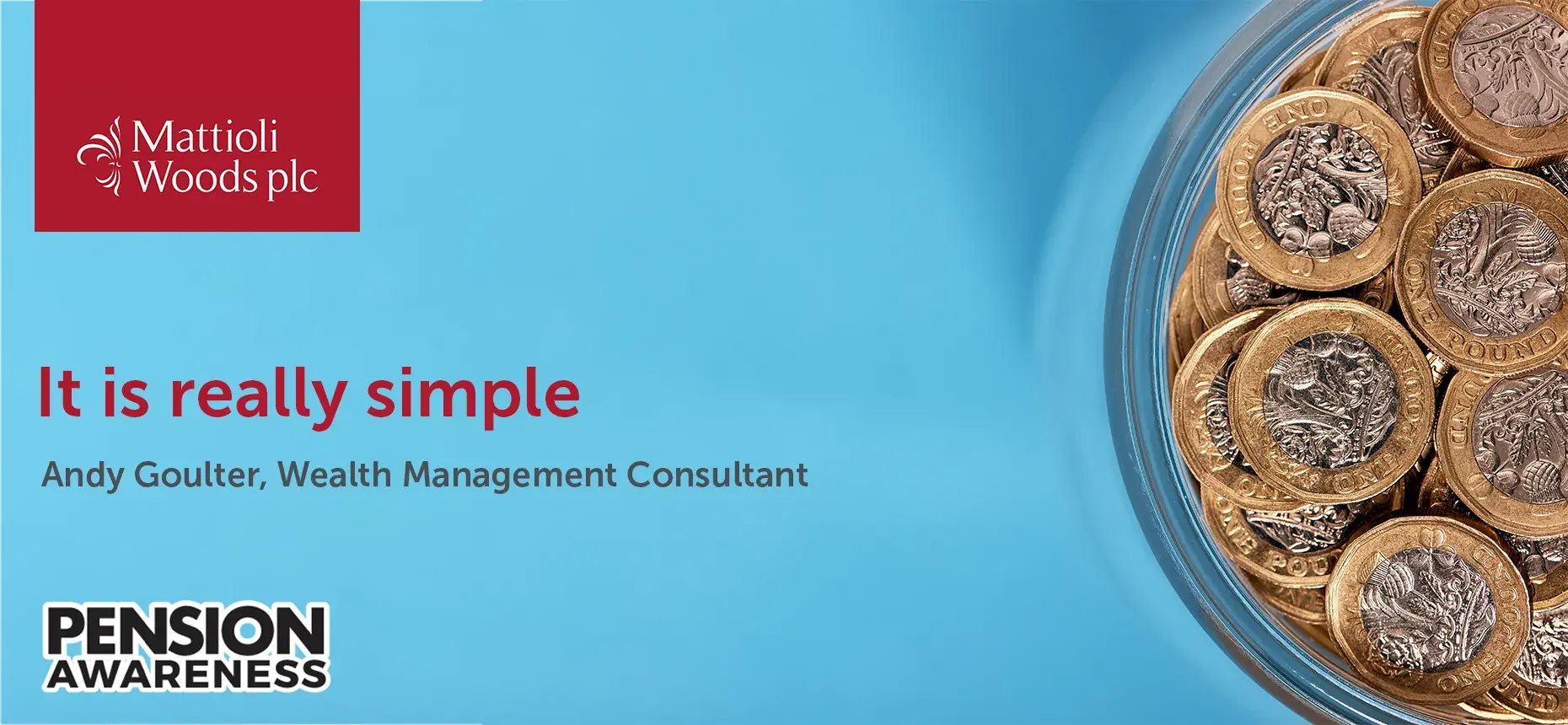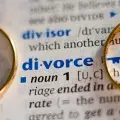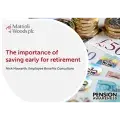Pensions are something I discuss a lot with prospects and clients alike. They tend not to be particularly exciting, are sometimes seen as over complicated or easy to forget if you are not taking from it, or just something that you have to have.
In the end, the purpose of a pension is very simple. It is there to provide for you in later life.
A defined contribution pension in its very base terms is a set of rules and a means to receive cash that is then paid out to you in retirement.
Without money being put into a pension in contributions, it will build no value. Modern defined contribution pension values are not based upon how long you have worked for a company but what you pay into them.
Without a set of rules they cannot give you the key benefits of a pension which are:
- tax relief on contributions
- tax free returns on investment growth
- flexible drawdown in retirement
Pensions themselves can be very basic and often what is key, is what you do with them.
Little and often
If you look in terms of simplicity, the average salary in the UK in 2021 was £25,971[1]. This considers part time workers and flexible workers together.
If 10% of this was contributed to a pension annually this would represent £2,597.
If an annual return of 5% per annum (after all charges) was made from the age of 18 to the age of 58 then the value of the fund would be £330,261. This is based upon earnings and contributions remaining static where we would usually expect that over time, earnings will increase.
It is important to stress that this is a stylised example of funding a pension. Growth is rarely in a straight line, if ever, and rarely do we start earning on the average salary. Often this is something we work up to and our priorities change over time.
Was funding my pension my priority when my daughter was born? No. But if you can find a comfortable place to be with your earnings and regular contributions then letting the pension work in the background is in your favour.
Whether this is enough to fund your retirement is much more subjective.
Pensions are going to follow you around
In the UK, the implementation of auto-enrolment has brought more people into the process of building up pensions:
- Employers are required by law to enrol most employees in a workplace pension scheme and contribute at least 3% of their salary into their pension pot.
- Employees contribute a minimum of 5% of their salary into a workplace pension scheme.
- Auto-enrolment applies unless you are under 22 years old or over state pension age, earn less than £10,000 per annum, work outside the UK or have a suitable existing workplace scheme.
Overtime an individual can develop several pensions from employment to employment. While this does conjure an image of juggling multiple policies, in effect it means there can be different ‘pots’ left around which could be streamlined or consolidated to bring everything under one roof.
Strategy matters
Classically, an individual may be able to afford to take more risk because they have more time to ride out volatility in the market. This is a generalisation and not advice, however, the impact of a high compounding growth rate over time is significant.
If, for instance, the value of return received was 8% instead of 5% using the same contribution amount as the example given earlier, the pension at retirement would have a value of £755,524. The key difference here is risk and it is not for everyone.
A pension cannot be accessed until you reach normal minimum pension age, or ten years before state pension age, which makes 55 the earliest you can access the funds (this is increasing to age 57 in April 2028 and may increase again in the future).
Due to this time horizon, for many younger investor, taking more risk may make sense as you are building over the long term. For those closer to retirement moving to less risk might suit the circumstances better. This of course is subject to each investors own circumstances and views on risk.
If you die, it does not die with you
Anything held in a qualifying pension fund does not fall into your estate and can be passed to your beneficiaries. That is usually tax free if you die before the age of 75 and is usually taxed at the beneficiaries’ marginal rate if you die after 75.
This means the funds you are putting towards retirement are still accessible to your family should the worst happen to yourself, providing a valuable support for your beneficiaries.
Not all pensions are the same
Pensions can sometimes have different rules, especially with older legacy structures. They may have benefits added to them or reduced flexibility that could be improved.
I have worked with prospects in the past who had worked on the basis that accessing your psion will have no consequences. Sadly, it is not so simple as it can impose limits on the ability to contribute in the future.
Get some help
Whether you should undertake any changes to your pension - like increasing contributions, changing risk or consolidating – all depends on your personal goals and circumstances.
If you have ever lost a minute of sleep worrying about your pension or your retirement plans, then taking the time to reach out for support is key. There are online resources from the Government or financial advisers, such as ourselves, who are happy to offer a free meeting to help you understand your position, providing you with some peace of mind.
Help is out there, you just need to ask. Simple really.
[1] What is the Average UK Salary? Updated 2022 (standout-cv.com)

































































































































































































